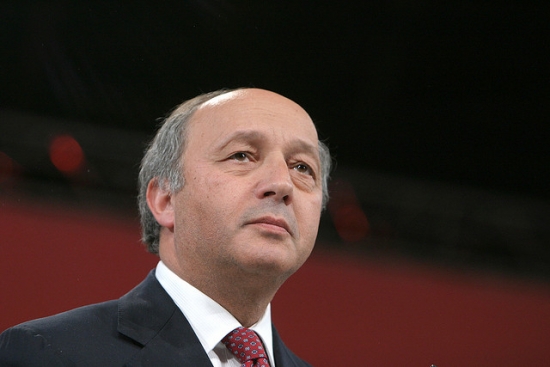
There is talk of the trauma of Aug. 31. On that Saturday afternoon President [Francois] Hollande took a call from President [Barack] Obama. A ramped-up France was in a state of readiness for the expected joint military response the next morning to the Syrian regime’s use of chemical weapons. Until Obama let drop his now notorious “non” after he had opted during a walk in the garden for a different course. France felt ill-used, having stretched to support its ally as Britain faltered, only to find itself dangling in foolish-looking vassal mode. Now, some 10 weeks later, Syria has revealed its chemical weapons arsenal and committed to giving it up. But, in the French view, the last-minute deal has also legitimized President Bashar al-Assad, put a nail in the coffin of the nonradical Syrian opposition and so set back any conceivable resolution of a devastating conflict. The French view is persuasive.
Then along came the Iran nuclear dossier, a subject on which successive French presidents — from Jacques Chirac through Nicolas Sarkozy to Hollande — have had a consistent view: The Islamic Republic wants a bomb; only a tough approach will stop it. Once again the French had the feeling of being presented by the Obama administration with a wobbly fait accompli. . . .
In a speech this week to mark the 40th anniversary of the formation of the French Policy Planning Staff, [French Foreign Minister Laurent] Fabius dwelt on this perceived trend. “The United States seems no longer to wish to become absorbed by crises that do not align with its new vision of its national interest,” he said, suggesting that this explained “the non-response by strikes to the use of chemical weapons by the Damascus regime, whatever the red lines set a year earlier.”
He went on to say this U.S. redirection seemed likely to be “durable,” reflecting the “heavy trauma of the interventions in Iraq and Afghanistan” and the current “rather isolationist tendency” in American public opinion.
Because nobody can take the place of the United States, this disengagement could create “major crises left to themselves,” Fabius said, and “a strategic void could be created in the Middle East,” with widespread perception of “Western indecision” in a world less multipolar than “zero-polar.”
Image: French Foreign Minister Laurent Fabus (photo: Philippe Grangeaud/French Socialist Party)
